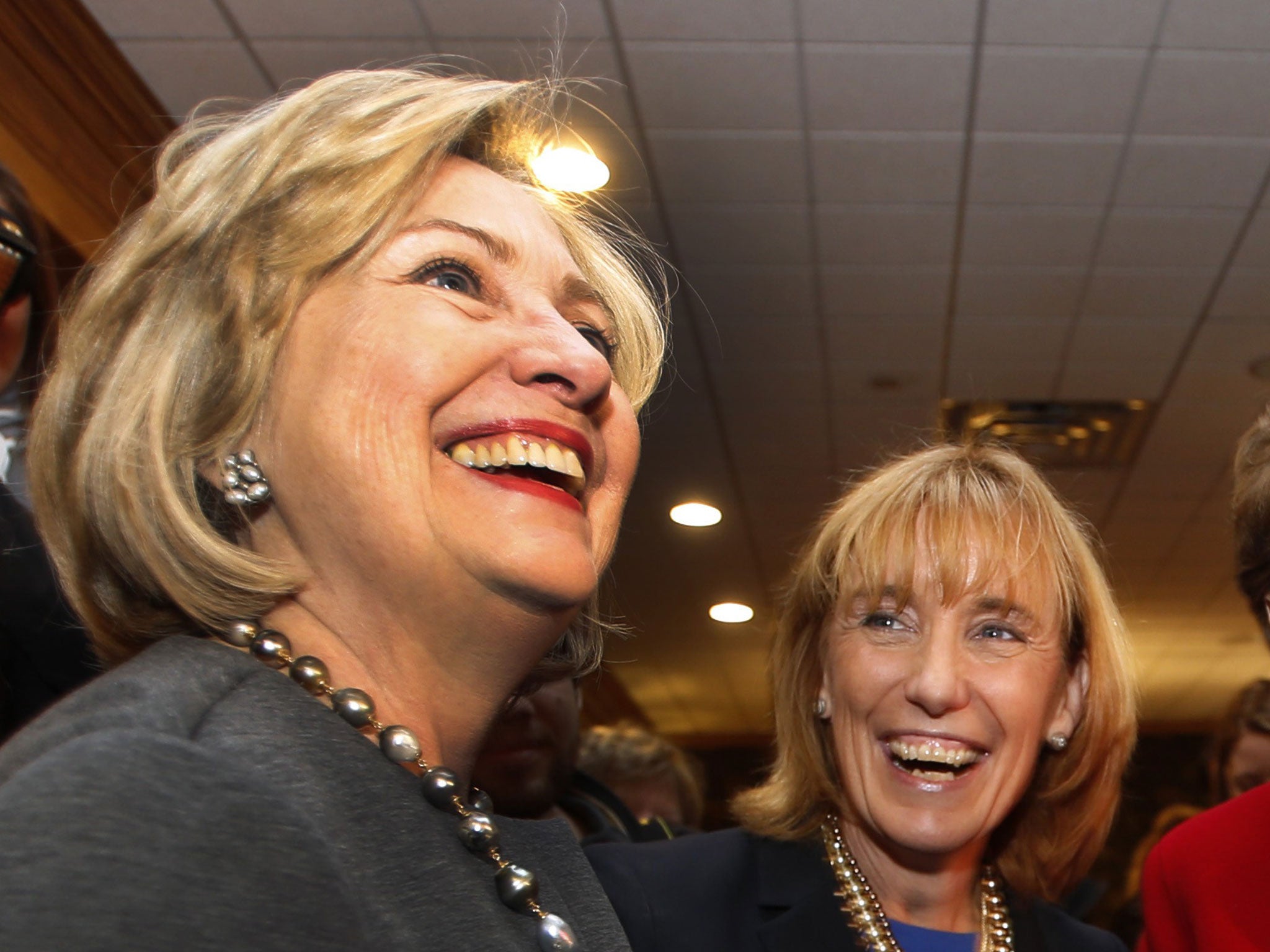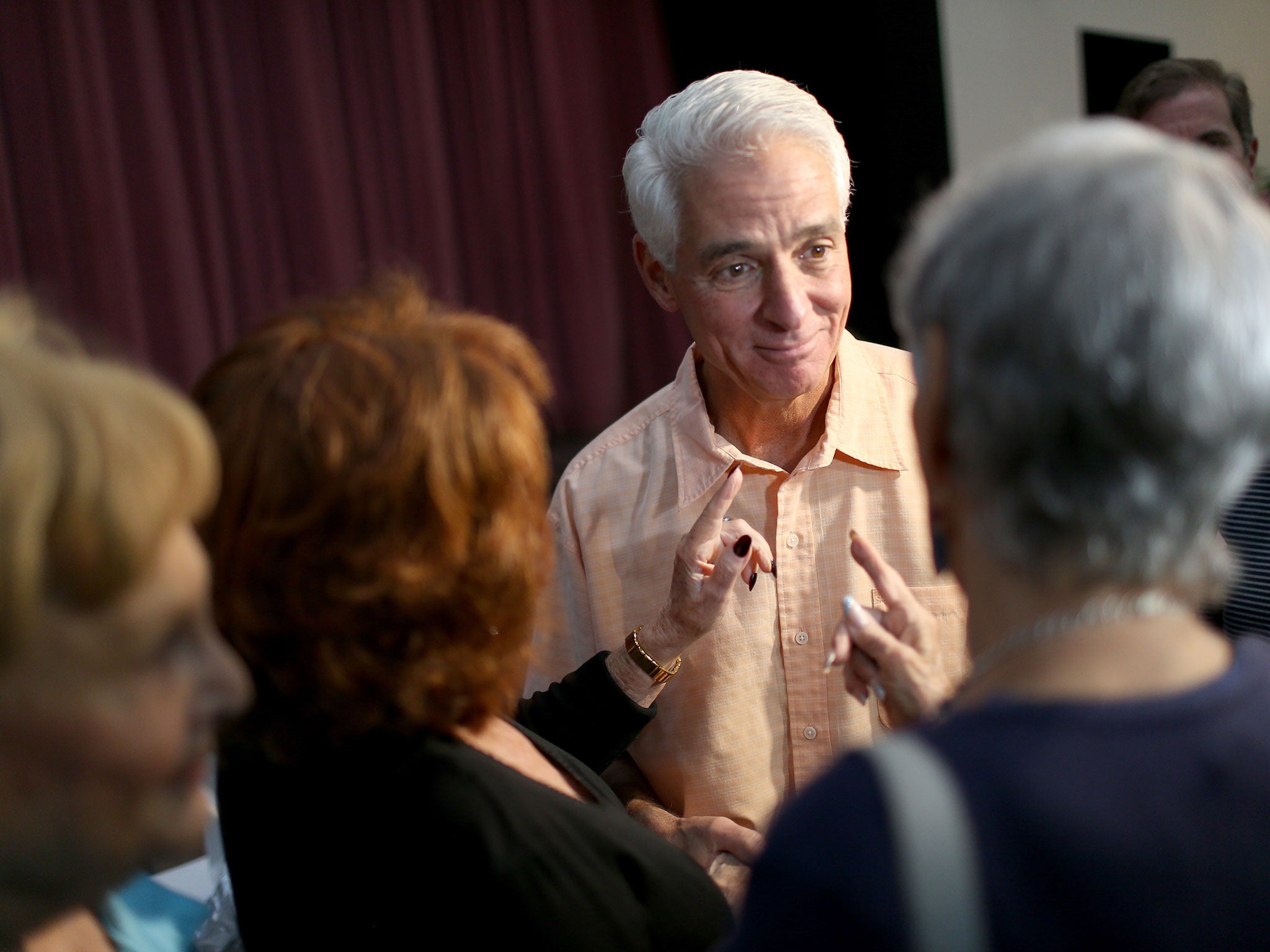US midterm elections: What's going on and what does it mean for the presidential race?
Representatives, senators, governors and that's before we even get to how well President Obama is doing

The US midterm elections fall tomorrow. The Independent's US Editor David Usborne guides you through what they're all about.
What’s going on?
Although US presidents serve a four-year term, the 435 members of the House of Representatives, the lower chamber of Congress, are elected for only two years at a time.
Voters also choose between candidates for seats in the US senate – roughly a third of those are also up for grabs.
At the same time, many states will also be picking their governors, who serve four years.
But, in general, a midterm election is also often seen as a referendum on the performance of whoever won the presidential race two years before – in this case Barack Obama.
So, how are things looking for President Obama?
In a word, grim. His low approval rating – as bad as 40 per cent in some recent surveys – is a strong drag on Democrats and no one gives them any chance of taking back control of the House of Representatives. There is also a more than even chance, most experts agree, that the Democrats will lose the Senate majority this time around as well.

That said, there is considerable suspense. There are about 12 Senate contests that are considered too close to call. To gain control of the Senate, the Republicans must achieve a net gain of six seats. That is doable, because there are clearly more vulnerable Democrat incumbents than there are Republican incumbents.
The Republicans in Congress score dismally in opinion polls, worse even than Democrats. Yet it seems that next month, the voters will reward the party with new gains in Congress. National approval trends don’t necessarily count for much when voting happens state by state and district by district.
Why does any of this matter?
What matters most is how things shake up in the Senate. If the Republicans emerge as the majority party in the Senate, the impact would be considerable because it would then have control of both chambers of Congress and become an even greater force in Washington than it is already.
Did someone say 2016? Hillary who?
Barack Obama may have two more years in the White House, but all this electioneering has inevitably got people thinking about the 2016 presidential contest. And of course this is also an opportunity for anyone thinking about declaring for president, perhaps as early as next spring, to test the waters around the country under the guise of stumping for candidates of their own party. They are also doing it to gather up chits; I back your election or re-election now and you help me two years hence.
She may have become a grandmother only at the end of September, but the most obvious among those presidential aspirants is Hillary Clinton. In recent days and weeks, the former first lady and Secretary of State has been hopscotching around the land to speak for Democrat candidates for the House, Senate and governorships. Those who thought she might have become rusty as a campaigner will have been disappointed
There is no obvious front-runner among Republicans for the 2016 nomination, but just about anyone with the slightest interest in running for it has also been out and about. Count among them Senators Rand Paul and Ted Cruz and candidates from past presidential years, Mike Huckabee and Rick Santorum. Jeb Bush, the former governor of Florida, has been showing up on the trail also. So by the way has Mitt Romney. But he won’t run again, surely? Well, he just might.
Did you say gubernatorial?
That’s the posh name for the races for governor now raging in about half the 50 states. While they may not directly affect national politics, the fortunes of both parties depend more than you might think on which of them has control of which states, particularly those that play critical roles in presidential years like Ohio and Florida.
All eyes this year are on Florida where Charlie Crist, once a Republican governor of the state, now turned Democrat, is trying to oust Rick Scott, the Republican incumbent. The men are neck and neck in a race that has become more expensive than any other across the land. And its nasty too. Also being closely watched is Governor Scott Walker’s efforts to win a second term in Wisconsin. Mr Walker is considered possible presidential material for the Republicans but that dream will be shattered if he doesn’t win next month.

Andrew Cuomo, the Governor of New York, is another possible future presidential candidate, though for the Democrats. His reelection next month looks assured. Democrats are stressing, however, over whether Martha Coakley, a former Massachusetts Attorney General, will be elected the next governor of that state and whether incumbent John Hickenlooper in Colorado can hang on. Both are in extremely tight races.
So we will know everything by the morning of 5 November?
Not necessarily. While American politics is still dominated by the two main parties – Democrats and Republicans – there are some independents who pop up in each election cycle. (In fact there are two independents serving in the US Senate now)
Two states with very close senate races where independents are also on the ballots are Georgia and Louisiana. They also stipulate that a candidate must achieve 50 per cent of the vote or more to be declared a winner. If it not the contests will go into run-offs between the top two finishers. In Louisiana that run-off would happen in December, but Georgia wouldn’t have its run-off till January next year.
If the balance in Congress is on a knife edge, say 49-50 on 5 November, with one of those states going to a run-off, we may not know who will control the chamber for two months more.
Join our commenting forum
Join thought-provoking conversations, follow other Independent readers and see their replies
Comments